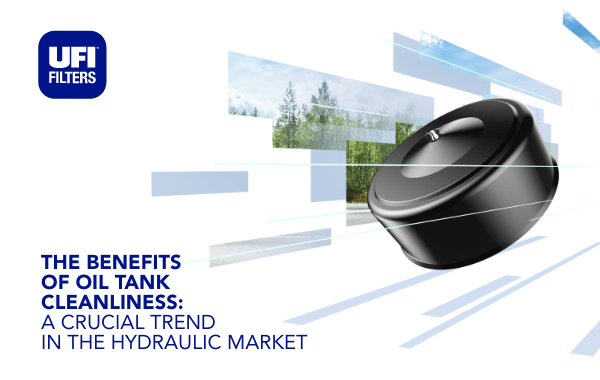
In the dynamic world of hydraulic systems, the efficiency and reliability of every component, even the smallest, is increasingly important.
Keeping hydraulic systems in optimal condition is critical to ensure that vehicles and machinery function properly, especially in demanding environments.
A critical component when considering system efficiency is the reservoir, which contains the hydraulic oil that transmits power to the entire system.
In fact, oil tank cleanliness is increasingly being recognized as a critical factor because it significantly affects the performance and longevity of hydraulic systems.
In this blog post, we will explore the importance of maintaining a high oil tank cleanliness and how users in the hydraulic sector can benefit.
Why is oil tank cleaning important?
Hydraulic systems are complex and operate under very variable conditions, making them susceptible to contamination.
Particulate matter, water, and other contaminants can infiltrate the oil tank, which can potentially cause damage to crucial and expensive components such as pumps, valves, and actuators.
Over time, these contaminants can cause excessive wear, reduced efficiency, and cost-intensive downtime. For these reasons, preventing contamination and maintaining a clean tank is extremely important.
Therefore, the tank should be inspected regularly by a trained technician to check for signs of contamination.
It may be more cost-efficient to include an additional return filter or carry out periodic cleaning than to implement a costly system upgrade or radically modify the system.
Note that it is often possible to perform off-line filtration to improve the cleanliness of an oil tank without draining it.
Benefits of oil tank cleanliness
The main benefits of oil tank cleanliness are:
- Enhanced system efficiency: clean oil is vital for the efficient operation of hydraulic systems.
Contaminants can cause friction, leading to energy loss and decreased performance.
By maintaining a high level of cleanliness in the oil tank, users can ensure that fluid flow is optimized and power wastage is reduced, resulting in improved overall system efficiency. - Prolonged equipment life: components within hydraulic systems are expensive to replace and repair.
Regularly monitoring the oil tank can prevent premature wear and extend the life of critical components, ultimately lowering maintenance costs and increasing the return on investment. - Minimized downtime: unplanned downtime due to equipment failure can have a negative impact on the operation and performance of a hydraulic system.
By adhering to stringent cleanliness standards, users can proactively prevent unexpected breakdowns and reduce the risk of costly operation interruptions. - Increased system reliability: Hydraulic systems are widely used in industries such as construction, manufacturing, and agriculture, where reliability is essential.
A clean oil tank ensures that the hydraulic system performs consistently and reliably, even in challenging environments, enhancing productivity and safety. - Compliance with industry standards: as demands for precision and quality increase, industry standards for cleanliness levels are becoming more stringent.
Adhering to these standards not only improves the efficiency of hydraulic systems but also ensures compliance with regulations, which increases customer confidence and creates a competitive edge in the market.
Maintaining cleanliness to minimize contamination
In conclusion, increasing cleanliness levels in oil tanks for the hydraulic market is important because of the derived benefits: from improved system efficiency and prolonged equipment life to minimized downtime and increased reliability.
The main components that are important for maintaining the desired level of oil tank cleanliness are:
- Return filters, either immersed or semi-immersed, guarantee increased system efficiency.
The filter cartridge, available in several versions, plays an essential role in protecting the system and should be replaced periodically to ensure efficient operation of the tank. - Air breathers and filters, which are vital for balancing the pressure inside the tank when there are variations of the oil level due to different demands from the system.
They also prevent the external contaminants to easily enter into the tank. - Clogging indicators, to monitor filter performance.
- Level indicators, to monitor the oil level in the tank so that it can be maintained at the optimal level.
The UFI Filters Hydraulics range is designed to meet various filtration needs, to ensure the required level of tank cleanliness is achieved by providing reliable and innovative solutions.
Our staff are available to support you in evaluating the best filtration solution to improve the cleanliness of your oil tank.